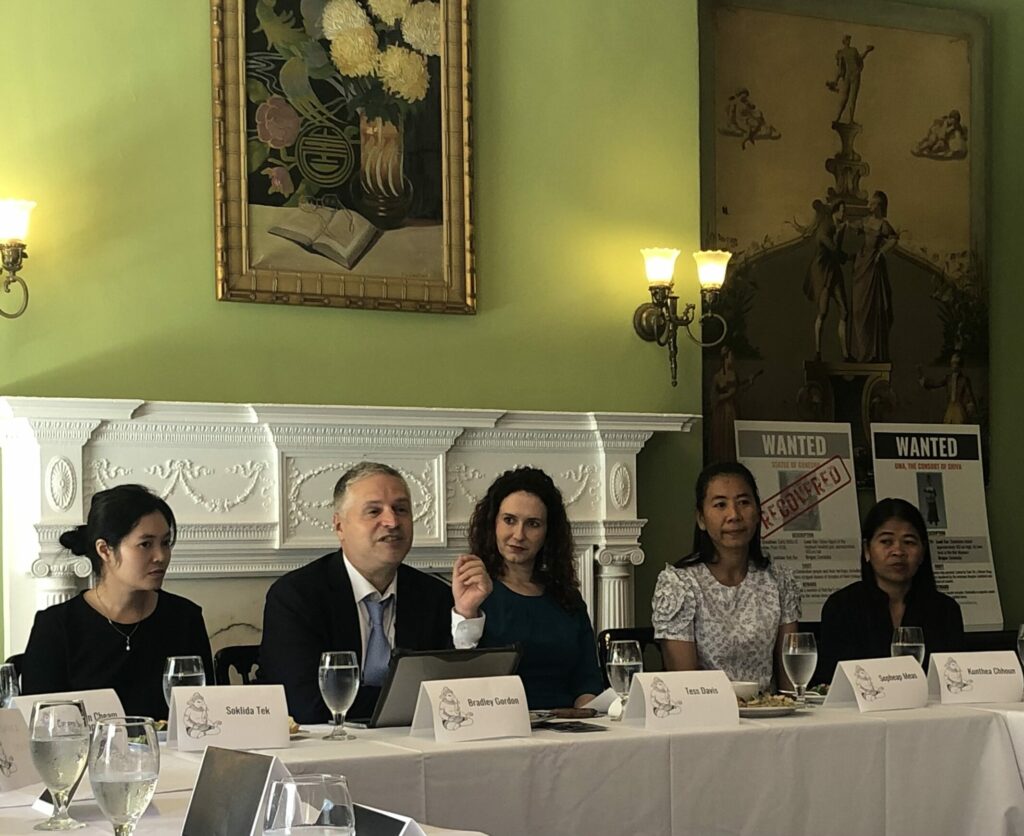Following High Level Convening with the Antiquities Coalition, the Ministry of Culture and Fine Arts of the Kingdom of Cambodia Announces Continued Action for the Association of Southeast Asian Nations (ASEAN)
Siem Reap, October 5—The Kingdom of Cambodia, with support from the Antiquities Coalition, has released an ambitious roadmap for tackling the illicit trade in cultural property across the Association of Southeast Asian Nations (ASEAN). Priorities include increased information sharing, strengthened cross-sectoral coordination, and a long-term strategy to address the root causes of the problem. These recommendations were developed during an emergency international conference, which was held from September 5-8 in Cambodia, this year’s ASEAN Chair.
The Antiquities Coalition, a nongovernmental organization based in the United States, joined the Kingdom’s Ministry of Culture and Fine Arts in recruiting high-level experts to share global best practices during the event. “The Prevention of the Illicit Trafficking of Cultural Properties: An ASEAN Perspective” convened ASEAN Member States, key partner countries, law enforcement, museums, and private sector representatives in Siem Reap, gateway to the temples of Angkor. This four-day program included an international plenum open to the public and press, closed-door meetings of ASEAN Member States to strengthen collaboration at the working level, and expert panels and site visits to share lessons.
“The theft and illicit trafficking of cultural property is an international criminal activity” and “major multilateral challenge that has to be addressed by all ASEAN countries,” said His Excellency Prak Sokhonn, Cambodian Deputy Prime Minister and Minister of Foreign Affairs, who opened last month’s conference. “My government is committed to putting a stop to the trafficking of our antiquities and we will work together with like-minded ASEAN governments, international organizations, and private sector partners to bring this to an end. We need to commit and to continue our fight to protect the soul of our cultural heritage and prevent the priceless antiquities from being further plundered, looted, and spirited away from the country.”
As the 2022 ASEAN Chair, Cambodia is using its platform to unite the region in the fight against the looting and trafficking of cultural heritage—a transnational crime that is threatening Southeast Asia’s rich heritage, local communities, and national economies. In addition to the September conference and today’s roadmap, this includes other concrete steps in the lead up to the ASEAN Summit this November in Phnom Penh.
“As Southeast Asia’s lead political and economic forum, ASEAN is in a unique position to make a difference,” said Deborah Lehr, Chairman and Founder of the Antiquities Coalition. “We are thus grateful to the Kingdom of Cambodia and its Chairmanship, the ASEAN Secretariat, and all Member States for demonstrating the political will to combat looting and trafficking from the top down. The creation of a regional working group, a multi-year action plan, and an annual convening on this subject will do much to channel ASEAN’s efforts in the months and years ahead.”
Tess Davis, Executive Director of the Antiquities Coalition, who opened the conference alongside H.E. Minister of Culture Phoerung Sackona and H.E. Deputy Prime Minister Prak Sokhonn, stressed the need for countries outside of Southeast Asia to support this effort—especially those who provide the market demand for looted antiquities.
“As a non-governmental organization headquartered in Washington, DC, we are grateful to see the United States working so closely together with Cambodia, as well as so many other countries here today,” Davis said at this month’s event. “These partnerships demonstrate what great accomplishments can be achieved when governments, law enforcement, and leaders in the arts and culture join forces.”
This convening is a significant milestone for ASEAN. Its ten governments are home to 55 World Heritage Sites, as well as four regional legal instruments for the protection of cultural property. It also has a demonstrated track record of tackling similar transnational problems, for example, through the ASEAN Working Group on Illicit Trafficking in Wildlife and Timber. However, despite this important foundation, the region’s art and antiquities remain under threat from criminals, as demonstrated by a slew of recent law enforcement seizures, prosecutions, and repatriations of artifacts looted from the region. The Antiquities Coalition strongly endorses today’s recommendations and looks forward to how Cambodia and other ASEAN states will combat looting.
Read the roadmap here.
For press inquiries or more information, please contact:
press@theantiquitiescoalition.org
202.798.5245 (T)








 Following this success, the Antiquities Coalition hosted a roundtable luncheon with a visiting delegation from the Royal Government of Cambodia to celebrate the kingdom’s recent efforts in finding, recovering, and bringing home its looted masterpieces.
Following this success, the Antiquities Coalition hosted a roundtable luncheon with a visiting delegation from the Royal Government of Cambodia to celebrate the kingdom’s recent efforts in finding, recovering, and bringing home its looted masterpieces.